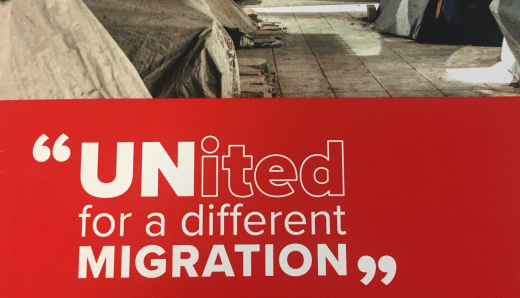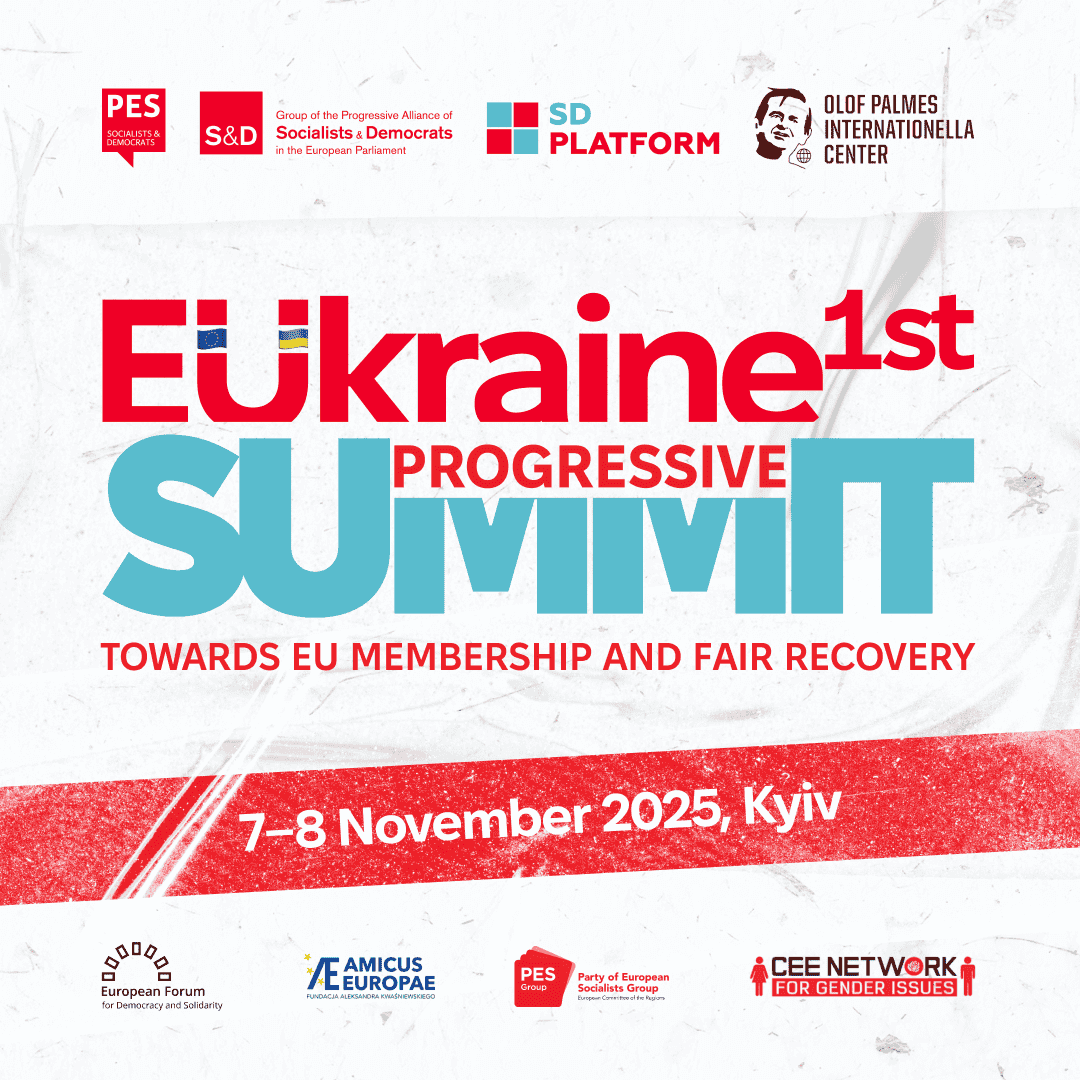By Anne van der Meer
It's UN week in New York City! That means: Heads of State and Heads of Government from almost all the countries in the world visit New York to join the General Assembly of the UN. This 73rd session of the General Assembly opened on the 18th of September and lasts until the 5th of October. Besides everything going on in the buildings of the UN itself, there are many side events in the city. Including the "UNited for a different migration" conference, organised by the Foundation for European Progressive Studies (FEPS), of which FMS is a member.
"We're not numbers"
The conference, consisting of 31 speakers and about 200 participants in just one day, focused on changing the narrative of migration. "We need a more positive story on migration," is what FEPS Secretary General Ernst Stetter mentioned in his welcoming word. Mexican-American activist and a so-called DREAMer Astrid Silva, Mexican-American, said it even more clearly when she spoke about her personal story: "We're not numbers. We're not beds to fill in detention centres. We're familias. Tell our stories, remind the world we are humans."
"Migration is so natural, even dinosaurs did it"
One important element of migration that came up multiple times during the conference is that migration is a natural phenomenon. "Brachiosaurus packs migrated to get water, migration is so natural even the dinosaurs did it," Silva taught us. Other speakers agreed: migration is something that has always been there, and therefore will stay. Guiliano Amato, Former Prime Minister of Italy and Chair of the FEPS Global Migration Group, added in the afternoon that "migration is not an evasion and it's not an emergency. So it shouldn't be countered with temporary measures".
The speakers of the conference also agreed that more legal pathways for migration are needed. "Unless we restore on a wide scale the legal pathways for migration, the illegal channels will remain necessary," said Amato. Spanish Foreign Minister Josep Borrell applauded the Erasmus+ for Africa opportunities for African students to study in Europe. In his view, African countries need human capital and studying legally in Europe is a great way to support this. Borrell in general called for more legal forms of migration, because "Europe needs migrants to address demographic declines, labor shortages, etcetera".
Global Compact for Migration
In 2016, during the General Assembly of the UN, member states discussed issues related to migration and refugees. This resulted in the New York Declaration for Refugees and Migrants. Since then, consultations and negotiations have been going on to adopt two Global Compacts, one on refugees and one on migration. The latter one being the basis of this FEPS "UNited for Migration" conference. Two Ambassadors, Juan José Gómez Camacho of Mexico and Jürg Lauber of Switzerland, facilitated the whole process of this Global Compact and were present at the conference to reach out to the audience on the specifics of it.
An often heard critique on the Global Compact is that it is just a political declaration and therefore not legally binding. The Ambassadors mentioned that it was part of the discussion in the early stages, but that a legally binding agreement would not be appropriate: "Migration is different from region to region". However, the whole process included many stakeholders. Or, as UN Special Representative for International Migration Louise Arbour mentioned in the afternoon: "The Global Compact is truly global. It privileged no region, and it shows migration as universal phenomenon".
Arbour was very clear during her speech that the EU (and other countries as well) should uphold the rule of law, including principles of humanitarian law: "The deaths of thousands of refugees and migrants at sea is and was both a tragedy and a call to action. But the principle of rescue at sea must be upheld!" Her statement was loudly applauded by the audience.
What now?
How to continue? It is clear that Europe needs some strategy to control migration. However, as all the speakers agreed, migration is something natural and has always been around. We need to create safe and legal pathways for migration, and develop a real partnership with Africa. FEPS President Maria João Rodrigues stated that for such a partnership we should devise fair trade agreements, work on tackling tax avoidance and improve working conditions within the supply chains in Africa. A remark very much welcomed by the FMS as well.
As FMS we have published our five points which we believe should be included when drafting migration and integration policies. You can check them here (in Dutch). Also, this coming year FEPS, with the support of FMS, will continue to work on the topic of migration, focusing on questions such as: Why do people want to migrate from African to European countries? Why do people risk their lives at sea? And what can be done to prevent people from taking these risks? Keep following us to keep updated.




